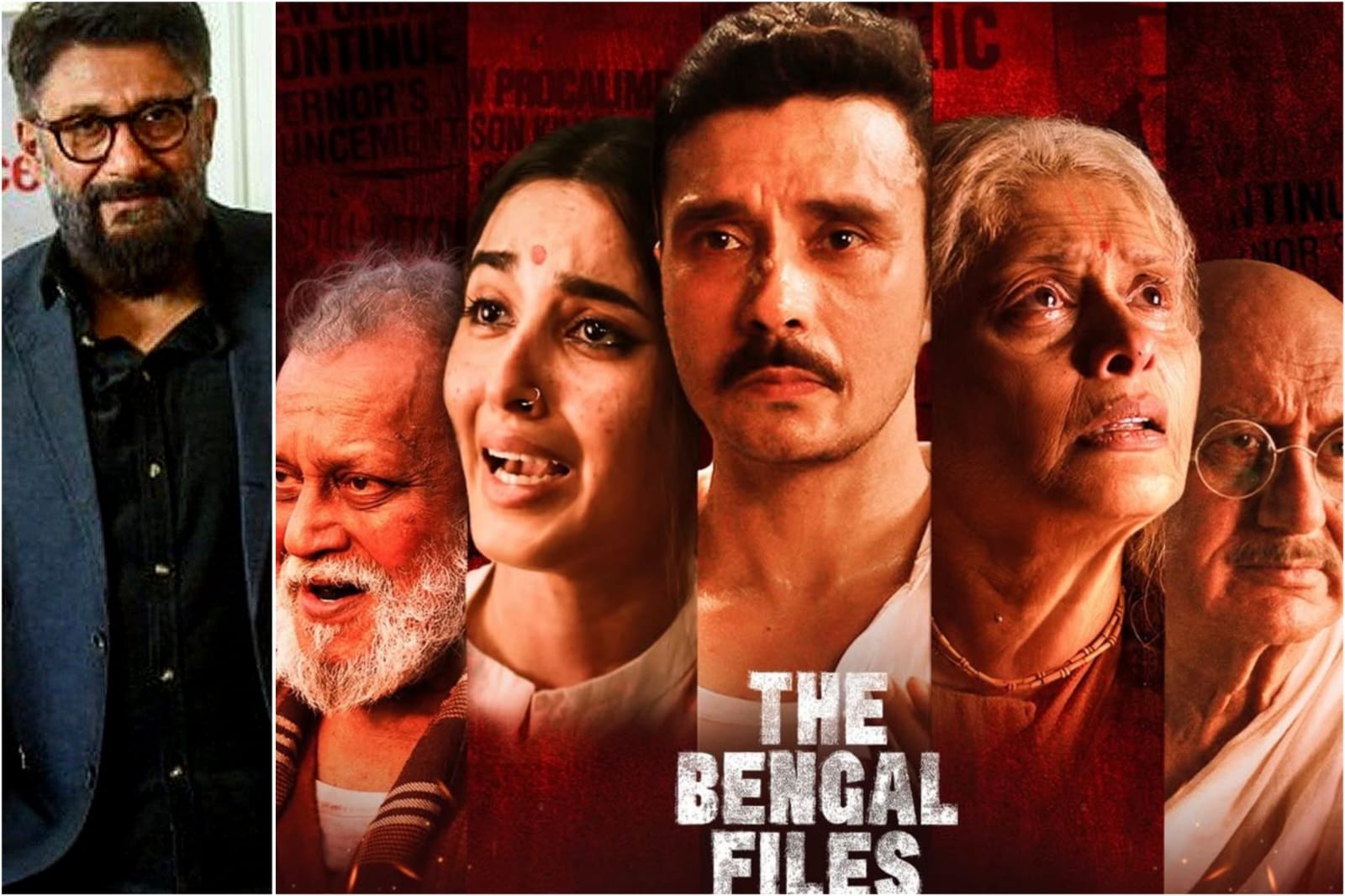Vivek Agnihotri’s The Bengal Files—the concluding chapter in his Files Trilogy—has arrived on September 5, 2025, with high anticipation and controversy. Following The Tashkent Files (2019) and The Kashmir Files (2022), the latest instalment dramatizes the turbulent events of Direct Action Day (August 16, 1946) and the communal violence that followed in Bengal.
The controversy deepened after Kolkata police disrupted the film’s trailer launch in August, an incident that Agnihotri described as “anarchy” and “dictatorship.” According to the filmmakers, these actions reflect an attempt to stifle a story that confronts one of the darkest chapters in Bengal’s past—the communal violence of 1946.
Even before its nationwide release the film has become a lightning rod for political and cultural debate. While there has been no official ban in West Bengal, multiplexes and single-screen theaters in Kolkata have largely refused to screen the film. Theater owners cite prior commitments to mainstream titles like Tiger Shroff’s Baaghi 4 and the Bengali film Dhumketu, but producer Pallavi Joshi alleges that intimidation by ruling party workers has forced exhibitors to withdraw support.
In a rare gesture of solidarity, legendary Bengali actor Victor Banerjee has also petitioned the President, urging that the film be allowed a fair release. His support has drawn attention within Bengal’s cultural circles, where opinion remains divided.
The central point of contention lies in the film’s depiction of the 1946 Great Calcutta Killings and Noakhali riots as a form of “Hindu genocide.” Critics argue that such a portrayal risks fueling identity politics and deepening communal fault lines in a state already polarized between the Trinamool Congress and the Bharatiya Janata Party. Supporters, however, insist that the film finally shines a light on a chapter of Indian history that deserves recognition, however uncomfortable.
The Bengal Files brings together an ensemble cast, including Mithun Chakraborty as Madman Chatur, Pallavi Joshi as Maa Bharati, Darshan Kumar as Shiva Pandit, Anupam Kher as Mahatma Gandhi, Saswata Chatterjee as Sardar Husseini, Rajesh Khera as Muhammad Ali Jinnah, Puneet Issar as Rajnath Singh, Priyanshu Chatterjee as Justice Banerjee, and Mohan Kapur as Huseyn Shaheed Suhrawardy. With a runtime of 204 minutes, the film is one of the longest in Indian cinema and seeks to combine investigative drama with historical reconstruction.
For now, what is clear is that The Bengal Files is already one of the most debated films of the year, raising questions about freedom of expression, historical memory, and political influence on cinema in India.
The Bengal Files is not just another release—it is a film entering theatres amid political debate and social tension. As with The Kashmir Files, audiences will likely walk out with divided opinions. Our suggestion: watch the film, reflect on its storytelling, and form your own perspective on how this chapter of history is being retold on screen.
